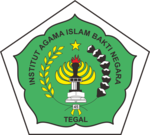Efektivitas Metode Pembiasaan Terhadap Pembentukan Karakter Religius Siswa Kelas VII MTs Model Ihsaniyah Kota Tegal
DOI:
https://doi.org/10.62490/latahzan.v14i2.334Keywords:
Habituation Method, Religious Character, StudentsAbstract
This research is motivated by the low attention of schools to the religious character of students. In the age of advanced technology, many students are swayed by various kinds of information and content on free social media so that students cannot sort out which things are good and which things are bad for their character. The interesting thing is that in MTs Model Ihsaniyah Tegal always applies the habituation method every day before learning with the aim of shaping student character. This study used a quantitative approach with an experimental method with a pre-experimental research design type one group pretest-postest design. The sample of this research was all seventh grade students at MTs Model Ihsaniyah Tegal with a total of 43 people. The results of this study are: (1) The application of habituation method in MTs Model Ihsaniyah Tegal City is classified as sufficient. This is evident from the posttest results of seventh grade students there is an increase in student character building, that there are 23 students with a percentage of 53.5% who are in the category of always applying the habituation method, and 20 students with a percentage of 46.5% who are in the category of often applying the habituation method. (2) The religious character of seventh grade students at MTs Model Ihsaniyah is classified as sufficient. This is evident from the average results of the pretest assessment of religious character before treatment is 25.86 and the average results of the posttest assessment of students' religious character after treatment is 32.60. (3) The habituation method is effective on the formation of religious character of seventh grade students at MTs Model Ihsaniyah Tegal City. This is evident from the results of research showing that t0 is greater than tt at the 5% significance level comparing the magnitude of "t" that researchers obtained (t0 = 16.68) and the magnitude of "t" listed on tt which is 2.62 (16.68> 2.62) which means Ha is accepted and H0 is rejected and means that there is effectiveness of variable X on variable Y.References
Abdillah, Eddy. 2014. “Minimnya Pendidikan Karakter Sebabkan Maraknya Masalah Sosial.” Antara Kalsel. Retrieved (https://kalsel.antaranews.com/berita/21127/minimnya-pendidikan-karakter-sebabkan-maraknya-masalah-sosial).
Agus Wibowo, Sigit Purnama. 2014. Pendidikan Karakter Di Perguruan Tinggi “Membangun Karakter Ideal Mahasiswa Di Perguruan Tinggi. Yogyakarta: Pustaka Pelajar.
Arief, Armai. 2002. Pengantar Ilmu Dan Metodologi Pendidikan Islam. Jakarta: Ciputat Press.
Arikunto, Suharsimi. 2002. Prosedur Penelitian Suatu Pendekatan Praktek. Jakarta: Rineka Cipta.
Hidayatulloh, M. Furqon. 2010. Membangun Peradaban Bangsa. Surakarta: Yuma Pustaka.
Hutami, Dian. 2020. Pendidikan Karakter Kebangsaan Untuk Anak Religius Dan Toleransi. Yogyakarta: Cosmic Media Nusantara.
Mahbubi, M. 2012. Pendidikan Karakter Implementasi Aswaja Sebagai Nilai Pendidikan Karakter. Yogyakarta: Pustaka Ilmu.
Mudjib, Abdul. 2021. Pendidikan Karakter Melalui Pembiasaan Salat Jamaah. Pekalongan: Penerbit NEM.
Muhammad Soleh Hapudin. 2019. Manajemen Karakter: Membentuk Karakter Baik Pada Diri Anak. Jakarta: Tazkia Press.
Nata, Abuddin. 2001. Filsafat Pendidikan Islam. Jakarta: Logos.
Prasetiya, Benny. 2021. Metode Pendidikan Karakter Religius Paling Efektif Di Sekolah. Malang: Academia Publication.
Ramayulis. 2001. Metodologi Pengajaran Agama Islam. Jakarta: Kalam Mulia.
Ramayulis. 2005. Metodologi Akidah-Akhlak. Jakarta: Kalam Mulia.
Redaksi, Tim. 2021. “KURANGNYA PENDIDIKAN KARAKTER DI SEKOLAH.” Retrieved (https://solusi.info/2021/12/864/).
Ridwan Abdullah Sani, Muhammad Kadri. 2016. PENDIDIKAN KARAKTER: Mengembangkan Karakter Anak Yang Islami. Jakarta: Bumi Aksara.
Su’adah, Uky Syauqiyyatus. 2021. PENDIDIKAN KARAKTER RELIGIUS (Strategi Tepat Pendidikan Agama Islam Dengan Optimalisasi Masjid). Surabaya: Global Aksara Press.
Sugiyono, Anas. 2009. Metode Penelitian Kuantitatif, Kualitatif Dan R&D. Bandung: Alfabeta.
Sukatin, M. Shoffa. Saifilla. Al-Faruq. 2021. Pendidikan Karakter. Yogyakarta: Deepublish.
Suralaga, Fadilah. 2005. Psikologi Pendidikan Dalam Perspektif Islam. Jakarta: UIN Press.
Syah, Muhibbin. 2020. Psikologi Pendidikan. Bandung: Remaja Rosdakarya.
Zubaedi. 2011. Desain Pendidikan Karakter (Konsep Dan Aplikasinya Dalam Lembaga Pendidikan). Jakarta: Kencana.
Downloads
Published
How to Cite
Issue
Section
License
Copyright (c) 2022 Wulan Mulyana, Arif Muntaqo

This work is licensed under a Creative Commons Attribution-NonCommercial-ShareAlike 4.0 International License.
The copyright of the received article shall be assigned to the journal as the publisher of the journal. The intended copyright includes the right to publish the article in various forms (including reprints). The journal maintains the publishing rights to the published articles.
In line with the license, authors and any users (readers and other researchers) are allowed to share and adapt the material. In addition, the material must be given appropriate credit, provided with a link to the license, and indicated if changes were made. If authors remix, transform, or build upon the material, authors must distribute their contributions under the same license as the original.
















